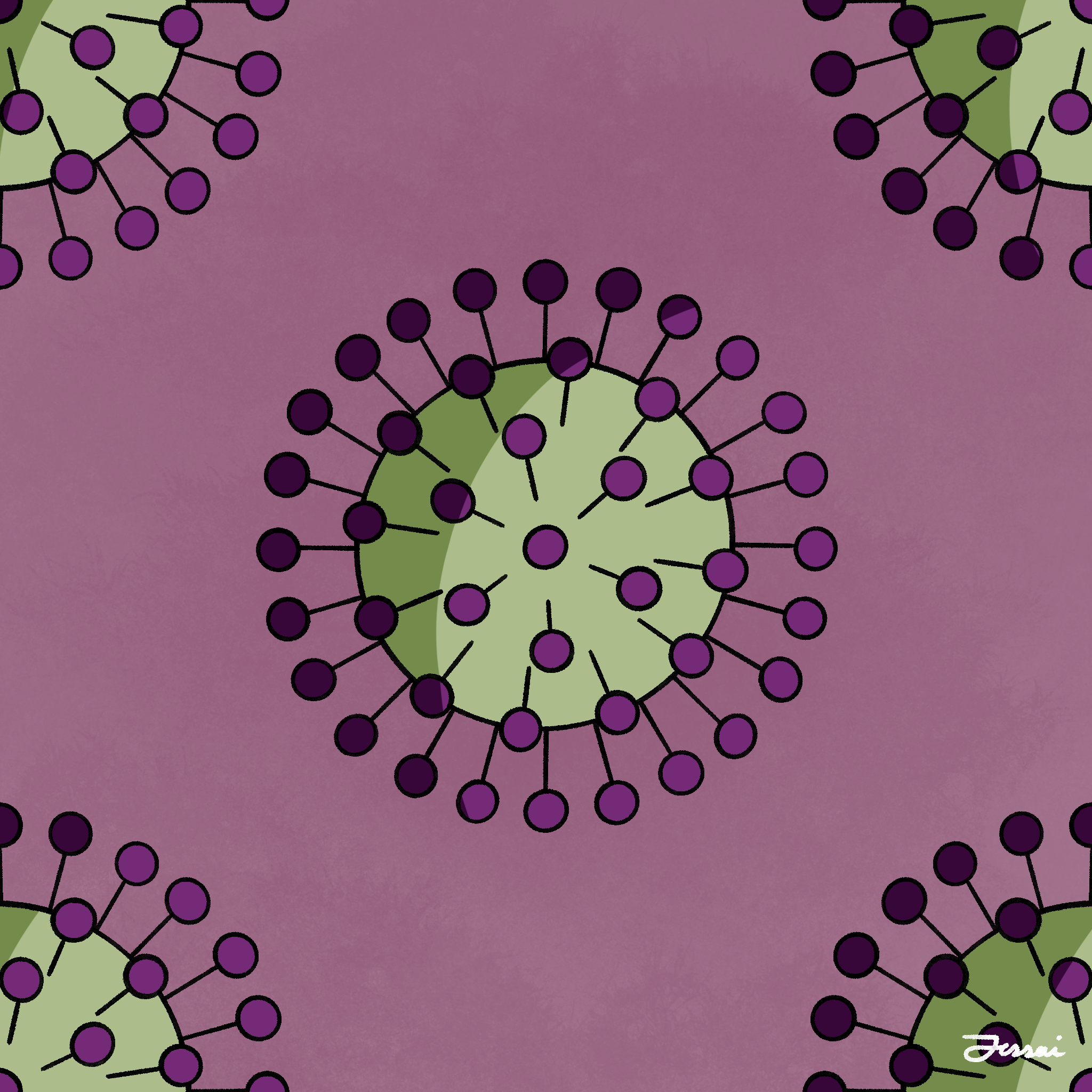Yale professors weigh in on the new Omicron COVID-19 variant
Yale professors spoke on what is known and unknown about the Omicron variant and criticized U.S. policy aimed at limiting transmission.

Jessai Flores
On Nov. 27, the World Health Organization designated the COVID-19 Omicron variant as a variant of concern. From tweets criticizing the recent travel bans to sharing probe sequencing data, Yale’s public health experts are weighing in on discourse surrounding the emerging variant.
Omicron was first identified by scientists in South Africa and reported on Nov. 24. According to the World Health Organization, the first known case of infection by the Omicron variant was from a specimen collected on Nov. 9. In recent weeks, South Africa experienced a drastic increase in new daily cases due to this variant, which has been identified in Australia, Italy, Germany, the Netherlands, Britain, Israel, Hong Kong, Botswana, Belgium, Switzerland and Canada. Within South Africa, cases spiked from an average of 200 new confirmed cases per day to more than 3,200 cases on Nov. 27.
Albert Ko, professor of public health and epidemiology at the School of Public Health, said it is concerning that the variant has already spread to other countries within a week of its identification.
“Because of how interconnected the world is, this probably has already spread quite a bit,” Ko said. “I wouldn’t be surprised if we were to detect it here in Connecticut in the coming weeks.”
The Omicron variant’s relative transmissibility — how likely it is to spread — and virulence — its ability to cause damage to a host — are currently unknown. According to Akiko Iwasaki, professor of immunobiology and epidemiology at the School of Medicine, early reports suggested that symptoms caused by the variant are unusual and mostly mild. However, the virulence needs to be investigated on a larger scale before conclusions can be made.
A cause for concern surrounding the new variant is its number of mutations. Omicron has more than 30 mutations on the spike protein, which is the viral protein that vaccines teach bodies to recognize and attack. Of those 30 mutations, 26 are unique spike mutations; in comparison, the Delta variant has 10 while Beta has six.
Iwasaki believes that overall vaccine effectiveness against Omicron will likely drop compared to the COVID-19 ancestral lineage and the Delta variant. However, despite the mutations, some of the antibodies generated by vaccines or prior infection are still expected to neutralize the virus in the body –– though this neutralization may be significantly reduced.
“This means getting a third shot with the existing vaccine is very important, as well as getting variant spike-specific vaccines when they become available,” Iwasaki said. “Even though the existing vaccines will not elicit antibodies specific to the Omicron spike, it will elevate the amount of neutralizing antibodies, some of which will likely cross react to the Omicron spike.”
According to Nathan Grubaugh, associate professor of epidemiology at the School of Public Health, it might take a few weeks to reach concrete answers. While researchers around the world race to test coronavirus vaccines against this new variant, transmissibility will remain unclear. Though South Africa has seen a sharp increase in Omicron cases, epidemiological studies are being conducted to figure out whether the spike can be attributed to the nature of the variant or other factors.
The alert from scientists in South Africa last week has been followed by detection in travelers from several countries, including Australia and the Netherlands. Though the variant has been detected in several other countries, the United States only imposed a travel ban on countries within Africa, including South Africa, Botswana, Zimbabwe, Namibia, Lesotho, Eswatini, Mozambique and Malawi.
Saad Omer, director of the Global Health Institute at Yale, criticized the effectiveness of the ban.
“They are trying to close the door when the horse has already left the barn,” said Omer. “What a blanket ban does is it disincentivizes countries from reporting. It’s a real concern if you know the dynamics in these countries. There are critics of the government that push back against disclosure in several of those countries.”
Gregg Gonsalves, associate professor of epidemiology and co-director of the Global Health Justice Partnership at the School of Public Health, emphasized that these travel bans are too late to be effective as the Omicron variant has already had weeks to spread globally.
“Cutting off Southern African countries from the rest of the world, while the variant is likely already dispersed, while allowing travel from other countries where the variant has emerged, as well as creating loopholes in the ban for certain individuals, all points to this being ‘pandemic theater,’ while scapegoating an entire region unnecessarily,” Gonsalves said.
According to Omer, one of the keys to fighting the spread of variants is global vaccine equity. In a Twitter thread posted on Nov. 26, Omer explained that while the United States has donated more vaccines than any other country, these donations are insufficient compared to the overall need. Meanwhile, Europe announced donations of around 0.5 billion doses, but has only delivered around 14 percent of those donations. Countries with low vaccination rates are at risk of an increased rate of replication of COVID-19 through community transmission. Each replication is another chance for the virus to mutate and thereby form new variants of concern — therefore, global vaccination rates must be raised in order to stop the formation of new variants.
Omer also advised that travel interventions such as pre-departure testing and rapid tests upon arrival would prove more effective than travel bans. Gonsalves, Omer, Ko, Iwasaki and Grubaugh all emphasized the continual importance of vaccination, masking and testing in preventing the spread of COVID-19.
“Regardless of Omicron, we have the Delta variant that is causing many new infections in the country,” Iwasaki said. “As we head into the winter break and travel season, we need to tighten our measures, not loosen them.”
There are now seven “variants of interest” or “variants of concern” outlined by the WHO.







